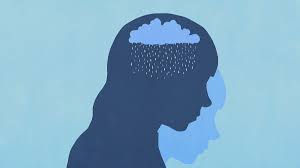The Comfortability of Sadness
- welearntoshare1
- 2023년 4월 15일
- 3분 분량
by Heeseo Kim (We Read to Share)

Days, weeks, months, and years will all have transpired. Endless days where all you can do is remain in bed and do nothing to maintain your hygiene and well-being. You know it's horrible, but why aren't you doing anything to break that cycle? Instead of getting up and doing something beneficial, you just play somber music in the background to make you feel even worse. Why is melancholy so soothing to us?
If you've been depressed or miserable for a long period, you may have grown accustomed to the sensation. Sadness has resided within you since you were a child, no matter what. Sorrow talked louder than anybody else, and it tucked you in a not-so-positive, but welcoming blanket. The sentimentality of happiness was not an occurrence of joyful emotions, but more of a question of "I wonder how long will it take for this happiness to be stripped away from me?" And those very thoughts were terrifying, terrified of the endless ups and downs that it will never be stable as just one thing. Thus, rather than enduring every human feeling, simply accepting yourself as the sadness you wallow in. It allows you to not try, to give up, and to validate yourself and others for doing merely nothing because you're distraught. This fear causes you to neglect your personal hurdles and treat them as if they were permanent rather than temporary. Isn't it safer than taking risks and damaging yourself even more? You're so used to being alone with depression, that any other person or emotion would put you at worry.
One may believe that being sad is a part of their identity, that it provides an explanation for your worldview, or that healing would entail reinventing a new you. These are normal and, to some extent, accurate feelings. A depressed disorder does influence how you perceive the world. Similarly, healing necessitates introspection and personal development. But, it is critical to acknowledge that, while the road will not be easy, it will be a great one that will lead to a more affluent and fuller world. Reinventing yourself does not imply losing your identity; rather, it entails discovering your inner self, a self capable of finding satisfaction in the world and performing to its greatest capacity.
This phenomenon could be related to how we regulate our emotions. The process of transforming bad emotions into more desired ones is known as emotional regulation. Individuals suffering from depression, on the other hand, may be directing their emotions in the wrong direction. They can decide to regulate them in a way that promotes their negative mood. One theory is that we prefer to experience emotions in order to validate ourselves. If someone considers oneself to be depressed, especially if they have low self-esteem, they may believe that feeling sad reinforces who they are.
But is it so wrong to find solace in remorse? In our modern culture, sadness is not frequently valued. Sadness is labeled as a "negative emotion" that needs to be held at bay or abolished in self-help publications, which stress the benefits of positive thinking, optimistic attitude, and positive activities. But evolution must have had something else planned, otherwise grief would not be with us today. Being sad on occasion serves some role in assisting our species' survival. While other so-called "negative emotions," such as fear, wrath, and disgust, appear to be obviously adaptive, preparing our species for flight, fight, or avoidance, respectively, the evolutionary benefits of sorrow have been more difficult to understand.
Sadness can improve our memories and, in some situations, our judgment and motivation. However, it's vital to note that sadness and depression are not the same thing. Sorrow is a natural human emotion that everyone feels during stressful or tragic moments, you can usually find some relief from sobbing or talking out problems. However, depression is an overpowering disorder that can impact someone’s entire life, it may come without reason, and it may last for a long time.




댓글